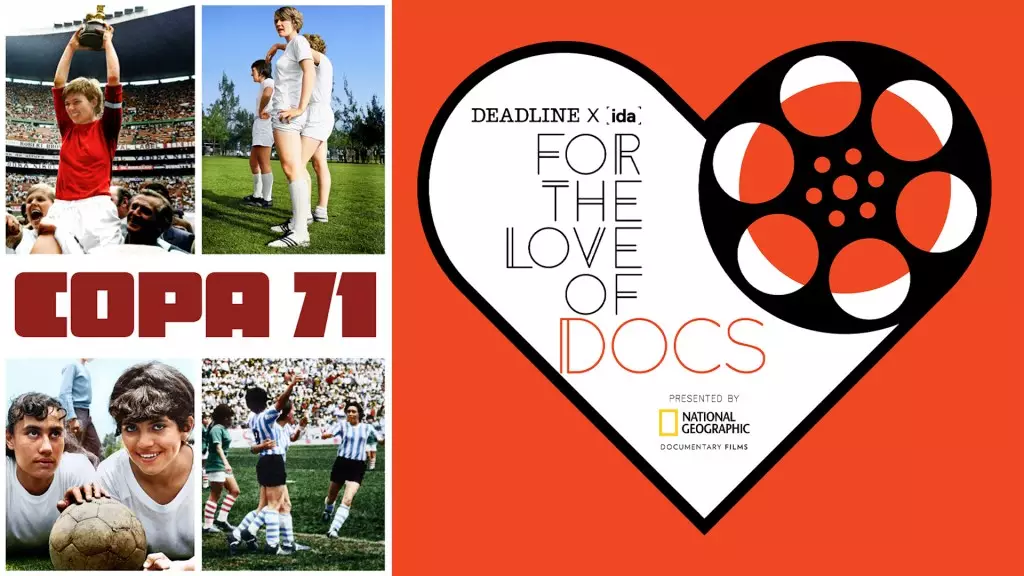The narrative of women’s sport has often been overshadowed by the louder voices of their male counterparts, but occasionally, moments emerge that serve as powerful reminders of the struggles, triumphs, and ongoing battles for recognition and equality. One such moment occurred in 1971 during the unofficial Women’s World Cup held at the iconic Azteca Stadium in Mexico City. This historic event, despite its monumental turnout of over 110,000 enthusiastic fans, is a significant chapter in sports history that has, until now, remained largely buried—Ironic for a contest that showcased the talent and resilience of female athletes.
The riveting story of this event has finally seen the light through the documentary “Copa 71,” brought to life by writer-directors Rachel Ramsay and James Erskine, with the help of writer-producer Victoria Gregory. The documentary not only uncovers the event itself but also addresses the cultural and sociopolitical landscape surrounding women in sports during that era. The film premiered as part of Deadline’s virtual series, For the Love of Docs, enabling viewers worldwide to engage with an essential yet often overlooked part of sports history.
Gregory’s journey to creating this documentary began serendipitously. After her husband exposed her to a radio piece featuring an England team member from the tournament, Gregory recognized the untold story and felt compelled to bring it to light. Bypassing mere documentation, they embarked on the arduous task of sourcing archival footage and connecting with surviving players—many of whom had faced this pivotal moment in their lives quietly, even withholding their achievements from family.
The challenges the creators faced were not merely logistical but deeply emotional. Initial conversations with the former England players were marked by skepticism and caution. Many women, having endured the indignities meted out to them by the media—who often reduced their contributions to sexualized caricatures—were understandably hesitant about telling their stories. This sensitive atmosphere necessitated an approach of transparency and trust-building, reassuring the players that the documentary would accurately reflect their experiences without sensationalism.
The air of distrust surrounding the project mirrored the broader relationship that female athletes had with the sporting authorities, particularly FIFA. During the 1971 tournament, FIFA’s refusal to recognize the legitimacy of women’s soccer reflected a misogynistic attitude that deemed the female game as inferior—a viewpoint that not only discouraged female participation but also denied them the support and resources necessary to thrive.
Despite the overwhelming success of Copa 71, the lasting scars from that period are evident. The tournament became a backdrop for discussions on whether female sports warranted investment and media attention, essentially positioning women athletes as second-class citizens in a male-dominated sport. The film poignantly highlights these dynamics, demonstrating how the issues of funding, representation, and respect for women’s rights in sports have persisted over decades.
This narrative juxtaposes sharply with recent events in sports culture, like Luis Rubiales’ infamous kiss to a player during a medal ceremony, a stark reminder that the battle for dignity and respect in women’s sports remains unresolved. While we may witness public discourse evolving regarding these issues, the behaviors and attitudes behind the scenes often remain stagnant, underscoring a critical question: how far have we really come since 1971?
Ramsay emphasizes that “Copa 71” delves into the recurrent themes of power, financial independence, and self-expression—an ambition to spark dialogue about gender politics in contemporary society. The film does not simply recount athletes’ victories on the field but encourages critical self-reflection among viewers about how much still needs to change.
Both Ramsay and Erskine articulate that while financial compensation for female athletes has become a visible topic, true progress hinges on dismantling ingrained hierarchies and promoting equality in opportunities and rights. This point becomes a central tenet of the documentary, shedding light on how manipulation and control threaten the autonomy of female athletes—a theme that resonates powerfully in today’s sports landscape.
As “Copa 71” continues to screen around the globe, it serves as a pivotal reclamation of a legacy that deserves recognition. The film isn’t just a celebration of one tournament; it’s a rallying cry for the need to honor the history of women’s sports and the individuals who have fought tirelessly to have their voices heard. It reminds us that while we may celebrate progress, it is our responsibility to bear witness and continue advocating for the equality that has long been sought. The story of Copa 71 is not just a historical footnote; it is a call to action—a reminder that the journey for female athletes is ongoing, and every story deserves to be told.

Leave a Reply